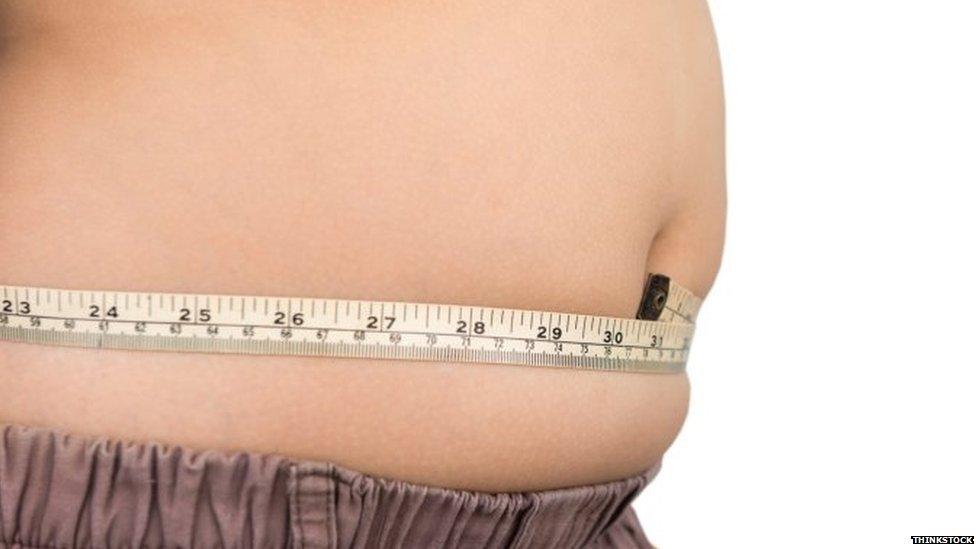Health is more than NHS doctors, nurses and hospitals
- Published
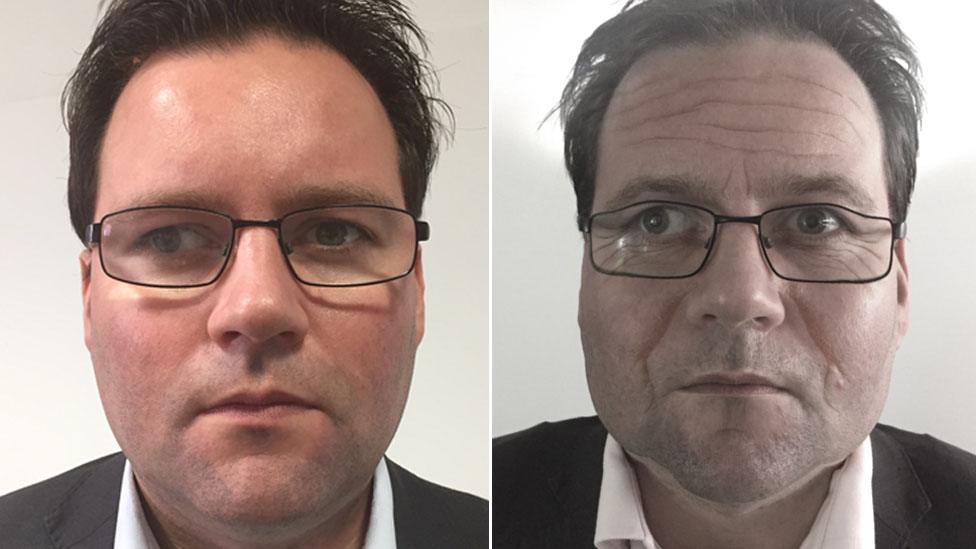
Health correspondent Owain Clarke now - and a generated image of how he might look at the age of 70
Ambulances, A&E, GPs and waiting times - health is never far from the headlines.
A growing and ageing population means more of us live with, or will one day need, care for long-term illnesses.
But are we - and that includes me - looking at health too much in terms of just how the NHS is operating?
Well, research suggests healthcare may in fact contribute as little as 10% towards the health and well-being of a country's population.
Or put it in another way: while the pressures on frontline services may dominate the news, the actual impact of those services to our health overall is actually relatively small.
Much more important, arguably, are things like the quality of our homes and the environment around us.

BETTER HOUSING IS A CORNERSTONE

The standard of housing - and its setting - can have an impact on our overall health
Stuart Ropke, chief executive of Community Housing Cymru
"When the nation talks about health, inevitably the focus is always on acute services - A&E, admission to hospital, quality of GP services - which are of course really important, but for me there are obvious building blocks which need to be in place so people don't reach that stage.
"For me, housing is the keystone of good health. At the very basic level, the fabric of the home providing warmth and protection from the elements but also the community where people live is really important to their well being.
"It's not just about delivering physical homes on the ground but ensuring the people living there are healthy, active and being supported."
So how do you do that?
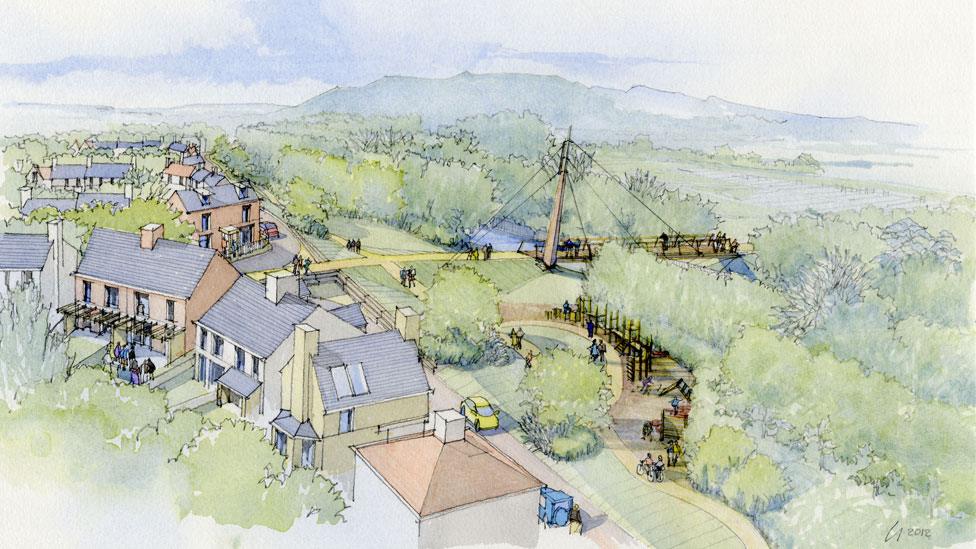
This Cardiff housing development will have a team managing it for half a century
On the site of the old Ely paper mill in Cardiff, 800 new homes will soon be built.
But the boss of the company responsible for this site tells me the £100m project is quite different to things done in the past, where developers tended to build homes, sell them and move on.
David Ward, chief executive of Tirion Group
"Fifty percent of this housing will be affordable homes and we're going to be here for 50 years, managing these homes. It's important we get the quality right for people renting. So from a public health point of view, we're offering good quality, well-managed homes, at a price people can afford."
A community engagement team will be working on projects with residents which range from the design of a riverside park to healthy living initiatives.
"We're looking at the allotments on the other side of the river and whether there's something we can do with the local community in delivering a food project and we're finishing the missing link of the Ely Trail which will connect all the way from Cardiff Bay to St Fagan's, which people cans use for walking, running and cycling but will also mean a commuter route to the centre of Cardiff."

PREVENTING BAD HEALTH AND A CULTURAL SHIFT IN THE PART WE ALL PLAY
But it is about much more than just housing, all public services have a part to play in trying to make sure we and future generations the best chance to be healthy and happy and prosperous.
But how do you get them all working together to achieve that goal?
Last year, a new law was passed in Wales - the Wellbeing of Future Generations Act , external- with the aim of doing just that. It was described as a world first.
The woman, charged with driving it, and advising, promoting and encouraging sustainable ways of working said it was about a cultural shift.
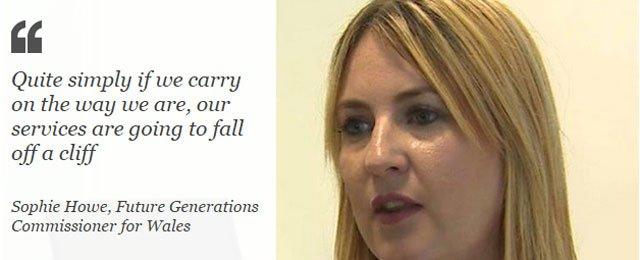
Sophie Howe, Wales' first future generations commissioner
"One of the most critical areas I think is a focus on prevention - a shift from just dealing with the here and now," she said.
"If you like, it's not parking our ambulance at the bottom of a cliff and waiting for them to fall over - but getting them on top of that cliff and making sure they don't fall in the first place."
"This is about a nurse thinking it's as much her responsibility to identify an issue of domestic abuse as a police officer," she added.
"It's incredibly tough but something we have got to do. Quite simply if we carry on the way we are, our services are going to fall off a cliff."

THE PUBLIC SERVICES BUDGET CONUNDRUM
Others, too, sense a risk.
In successive recent budgets, hundreds of millions of extra pounds have been pumped into the NHS, largely to help it cope with the pressure its under.
Yet other areas have been squeezed.
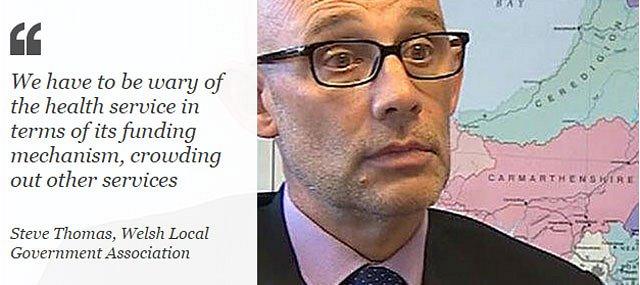
Steve Thomas, chief executive of the Welsh Local Government Association
"I pose this question: what do you want your public sector to be?
"If we carry on the same route, especially if austerity continues and deepens in this next period, the public sector will be schools and hospitals and very little else.
"The danger is you exclusively look at one part of the system and forget another part. We have to be wary of the health service in terms of its funding mechanism, crowding out other services.
"I'm hoping with the Wellbeing of Future Generations Act, if the Welsh Government is serious about prevention, they will follow that philosophy through.
"Then you're going to have to start thinking about some of those services which stop people getting into hospital in the first place and you're going to have to think about properly funding them."
A WORLD PERSPECTIVE
Dr Piroska Ostlin, director of policy and governance for health and well-being at the World Health Organization (WHO), in Cardiff for a two-day public health conference, said: "The biggest challenge we have now is to address health inequities which are very closely related to social inequities.
"It has an economic side as well, it costs a lot of money. Health is a very expensive business but it's interesting we only spend only 2-3% on prevention and health promotion, the rest is curative care."
She said the Future Generation Act in Wales was a major forward-looking landmark which could be a model the rest of the world could use - but it needed to be implemented in Wales or there could be a rise in health problems.
"We know what the root causes of health inequalities are - bad housing, low education, low income, poverty - these factors cannot be controlled by the health sector, we need really the help of other sectors. We have to absolutely abandon the silo approach."
People understand the NHS is under more pressure than ever before.
And any opinion poll will tell you, it is top priority for voters.
But broadly speaking the NHS is there to help us when things go wrong.
The question is how do you prevent more of those things from going wrong in the first place.
Health is about so much more of course than the NHS. The challenge is about striking the balance.
- Published2 November 2016
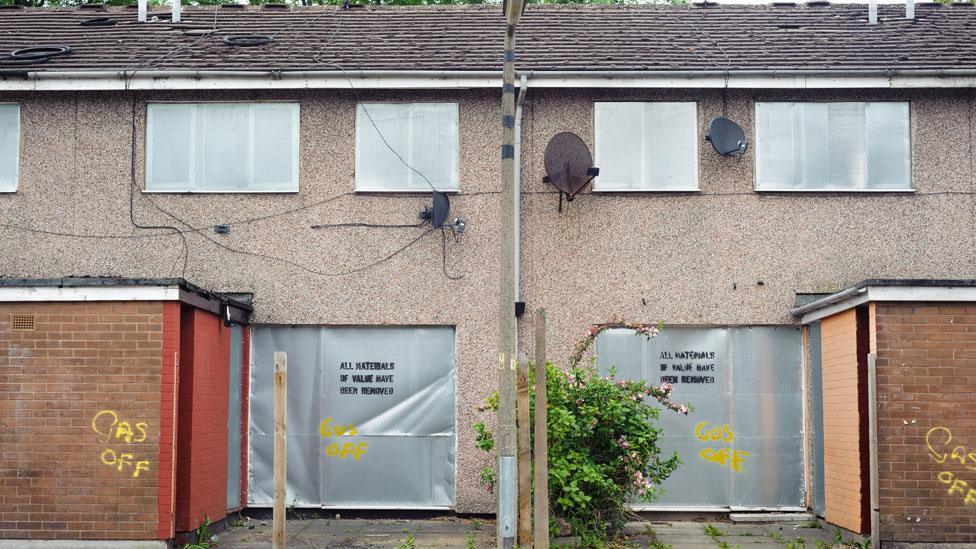
- Published1 November 2016
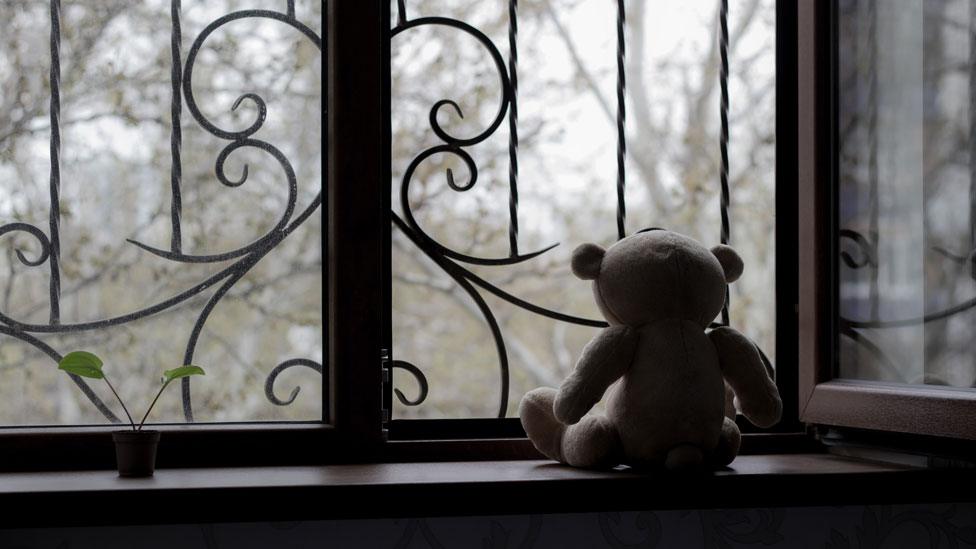
- Published16 March 2016
